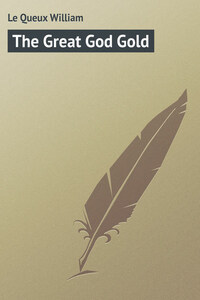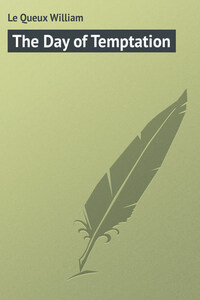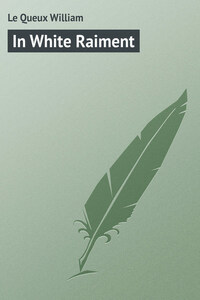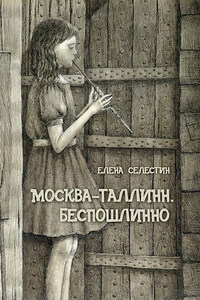The remarkable secret revealed in the following pages is not purely fiction.
The discovery, much in the form that I have here presented it, has actually been made, and its discoverer, a well-known professor at one of the Universities in the North of Europe, recently placed the extraordinary statement in my hands.
In consequence, I consulted a number of the first living authorities on the subject, who most courteously gave me their opinions and to whom I owe much assistance, while several other Hebrew scholars, less noted, evinced the greatest curiosity.
Therefore I trust that the reader himself may find this hitherto unheard-of statement of facts of equal importance and interest.
William Le Queux.
Devonshire Club, London, 1910.
Chapter One
Introduces the Stranger
“My name? Why – what does that matter, Doctor? In an hour – perhaps before – I won’t trouble anybody further.”
“But surely it is your duty, my friend, to let me know your name?” argued the other. “Even if it be in confidence.”
The dying man slowly shook his head in the negative, moved uneasily, and stretching forth his thin trembling hand, answered in indifferent French.
“I regret that I cannot satisfy your curiosity. I have a reason – a – a strong private reason. Here is my key,” he went on, speaking very slowly and with great difficulty in a weak voice scarce above a whisper. “Open my bag, doctor, and; – and you’ll find there a – a big envelope. Will you give it to me?”
The Doctor, a queer, deformed little man shabbily dressed, with grey hair and short grey beard, rose from the bedside and with the key crossed to where a well-worn leather bag lay upon the floor.
As he turned his back upon his nameless patient and knelt beside the bag, a curious look of craft and cunning overspread his hard, furrowed countenance. But it was only for a second. Next instant it had vanished, and given place to that serious expression of sympathy which his face had previously worn.
He found a large blue, linen-lined envelope which he gave into the white trembling hands of the stranger.
The prostrate man looked about fifty, his unkempt hair and moustache just tinged with grey, unshaved, and with white drawn face betraying long and intense suffering.
Why was he so determined to conceal his name? What secret of his life had he to hide?
Upon his blanched features was written the history of a curious and adventurous past. Perhaps he held some strange and amazing secret. He was eccentric in only one particular – that though he knew himself to be dying, he would leave no message for any relative; refusing absolutely and stubbornly to give his name, even to the man who, now at his side, had befriended him.
The room was a small and not over cleanly one, high up in a fourth-rate hotel close to the Gare du Nord, in Paris, a room with a single bed, a threadbare carpet, and a cheap wooden washstand with the grey December light filtering through lace curtains that hung limp and yellow. The wallpaper was greasy and faded, and the bed itself the reverse of inviting.
To Doctor Raymond Diamond the dying man had been an entire stranger until three days before – a chance acquaintance which adversity had brought him. Both men were, as a matter of fact, stranded in Paris. They had, in ascending the narrow stairs of their little hotel, wished each other “Good-day.” Men who are hard up always form easy acquaintanceships. The stranger had told him that he was a Dane, from Copenhagen, but the name, Jules Blanc, which he had given to the proprietor was certainly not Danish. Indeed, he had admitted to Diamond that he had not given his real name. He had reasons for withholding it.
He was a mystery, and the Doctor strongly suspected him of having absconded from his native land, and coming to the end of his resources, was now in fear of the police.
That he was well educated had been quickly apparent. Though he spoke French badly it was evident that he had nevertheless travelled extensively, and had, in his better days, been possessed of considerable means. He had been in the Near East, Asia Minor, Syria, Palestine and Egypt, and appeared to possess an intimate knowledge of those countries.
Yet his luggage had been reduced to that one small bag containing a big blue envelope and a chancre of linen.
For two days they had idled about Paris together, both practically without a sou.
The Doctor, when he had discovered the true state of his friend’s finances, had explained that he too was “temporarily embarrassed owing to his many recent investments;” whereat they had both laughed in chorus and with light hearts spent half the day lazily lolling upon the seats in the Tuileries Gardens watching the children at play.
It was during those idle hungry hours that the stranger’s remarks aroused within the Doctor the greatest curiosity. Diamond himself, an Englishman, had in his student days taken his M.D. at Edinburgh, and was also a scholar of no mean attainments, yet this Dane’s knowledge of many occult matters appeared amazingly profound.














